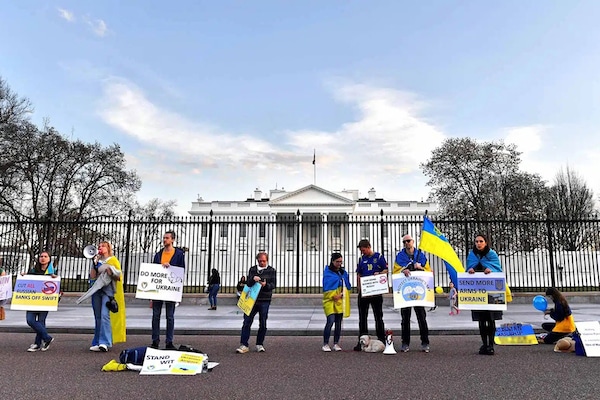At the end of March, I sent a brief e-mail notice of my article “The Ukraine war and Europe’s deepening march of folly”. The article has been published and re-posted in multiple places, including being translated into Spanish and Italian.
It describes the political economic costs incurred by Europe owing to the war; the political economic interests driving Europe’s stance on Ukraine; the false narratives used to drum up popular support; and the likely further political and economic costs from Europe’s deepening turn to militarism in the name of Ukraine.
In response, I was notified by the Post-Keynesian Economics Society (PKES) that I had been cancelled and my right to communicate with colleagues via the PKES list-serve had been suspended for three months.
The decision is triply deplorable. First, this is a time when free speech is under grievous attack and we should all defend it. Banning political economic analyses of the Ukraine war that criticize the Western establishment is the opposite. It places one in the company of those who argue for banning critique of Zionism or Israel on grounds that it is antisemitic.
Second, freedom of speech is especially precious to academics and the PKES is a network that connects academics.
Third, pluralism is a core claim of Post Keynesian economics and the ban is an affront to pluralism. It is easy to preach pluralism but difficult to practice it, as that requires tolerating views one may not like.
I hope readers will share this note and it prompts debate about the current fragility of pluralism in heterodox economics and society.

